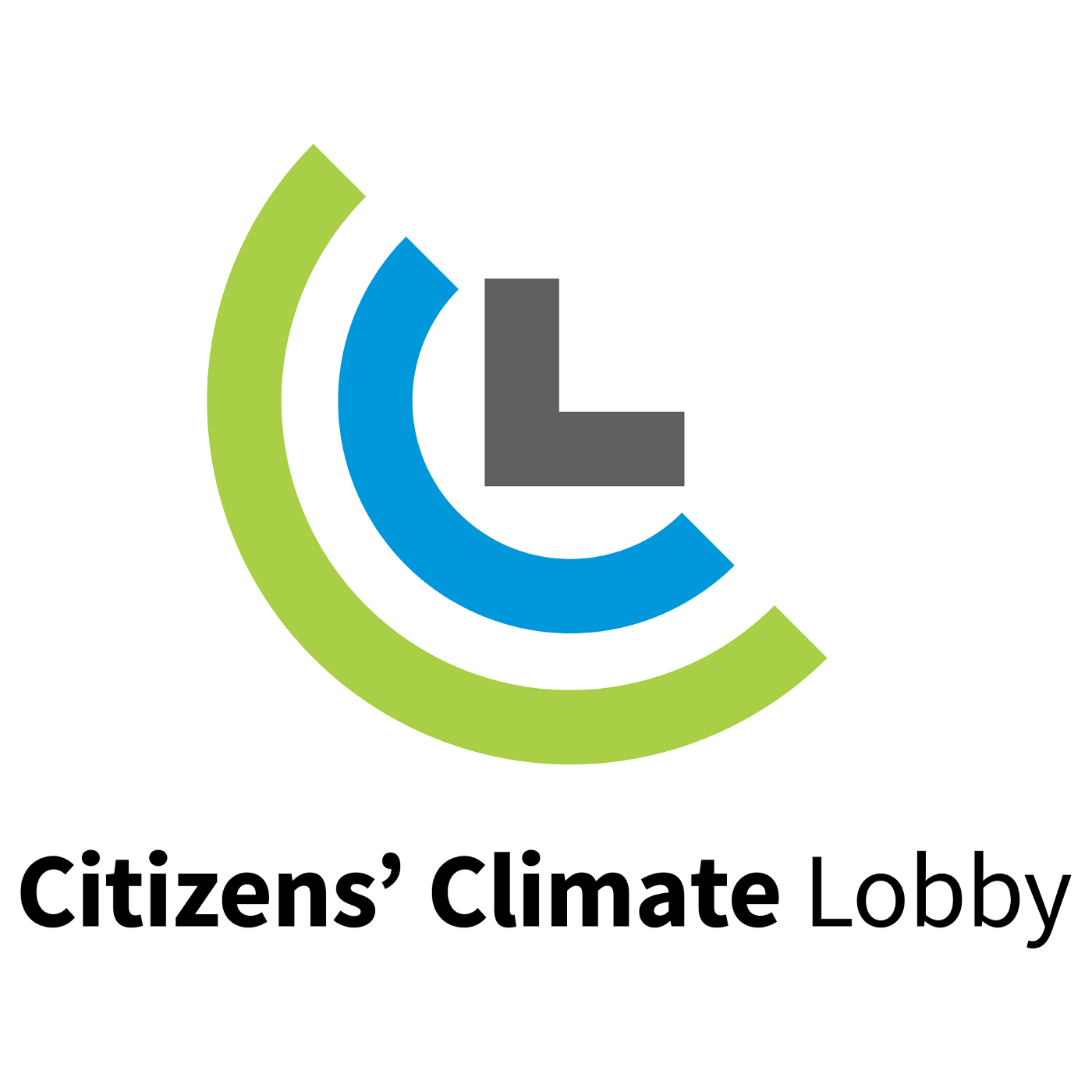Episodes
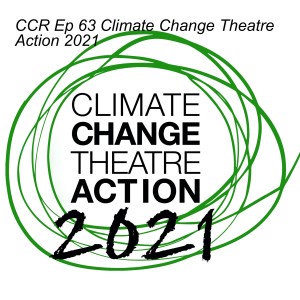
Friday Sep 03, 2021
CCR Ep 63 Climate Change Theatre Action 2021
Friday Sep 03, 2021
Friday Sep 03, 2021
Chantal Bilodeau tells us about Climate Change Theatre Action (CCTA) 2021. Founded in 2015, CCTA is a worldwide series of readings and performances of short climate change plays presented biennially to coincide with the United Nations COP meetings.
CCTA was originally founded by Elaine Ávila, Chantal Bilodeau, Roberta Levitow, and Caridad Svich following a model pioneered by NoPassport Theatre Alliance. It has since evolved into a U.S.-Canada collaboration between The Arctic Cycle and the Centre for Sustainable Practice in the Arts.
Chantal is a playwright and translator originally from Tiohtiá:ke/Montreal, but now based in New York City, the traditional land of the Lenape People. In her capacity as artistic director of The Arctic Cycle, she has been instrumental in getting the theatre and academic communities, as well as audiences in the U.S. and abroad, to engage in climate action through programming that includes live events, talks, publications, workshops, national and international convenings, and a worldwide distributed theatre festival.
To tell us about one of the plays is Dr Zoë Svendsen, Lecturer in Drama and Performance in the Faculty of English, University of Cambridge. Dr. Svendson’s play comes out of a larger project called Love Letter to a Livable Planet. Through collaboration with members of METIS Arts, Zoe created a short play called Love Out of Ruins, where we get to decide many of the details.
Think of it as a much more sophisticated version of Mad-Libs with the aim to create a vision of the future worth pursuing. The play begins in the present time and moves forward. You get to decide the details that shape the character’s world.
You can read Love Out of Ruins by Zoë Svendsen at one of your CCL events. In fact, having a group of friends, students, or climate advocates sit and each fill in the lines can be a mind and heart expanding activity. Then you can share the results at a Climate Change Theatre Action event you host and read some of the plays by the 49 other playwrights from around the world.
Learn more about how you can get your hands on these plays and host your own event. Visit climatechangetheatreaction.com.
The Art House
As a podcaster and radio producer, our host, Peterson Toscano listens to many climate change podcasts. Every now and then though he hears a well designed podcast that hits him in the heart and the gut. It becomes a transformative audio experience. This is exactly what happened when he first listened to Claude Schryer’s Conscient podcast.
As a sound designer, he is able to reach deep into a listener’s mind and even our bodies. Sound has that power. Peterson chatted with Claude about his podcast and his own journey as an artist addressing climate change. From that recorded conversation, Claude wove in sound effects and personal reflection. We encourage you to listen with headphones on.
The conscient podcast / balado conscient is a bilingual series of conversations about arts, conscience and the ecological crisis.You will find it wherever you listen to podcasts.
You can hear standalone versions of The Art House at Artists and Climate Change
Good News Report
Our good news story this month comes from the US State of Utah. Tom Moyer shares How 25 Republicans in Utah came to endorse carbon fee and dividend. If you have good news to share, email us radio @ citizensclimate.org
We always welcome your thoughts, questions, suggestions, and recommendations for the show. Leave a voice mail at 518.595.9414. (+1 if calling from outside the USA.) You can email your answers to radio @ citizensclimate.org
You can hear Citizens’ Climate Radio on iTunes, Spotify, Stitcher Radio, SoundCloud, Podbean, Northern Spirit Radio, Google Play, PlayerFM, and TuneIn Radio. Also, feel free to connect with other listeners, suggest program ideas, and respond to programs in the Citizens’ Climate Radio Facebook group or on Twitter at @CitizensCRadio.
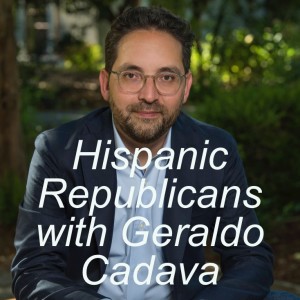
Friday Jul 30, 2021
CCR 62 Hispanic Republicans with Geraldo Cadava
Friday Jul 30, 2021
Friday Jul 30, 2021
Geraldo Cadava is the author of The Hispanic Republican: The Shaping of An American Political Identity, from Nixon to Trump published by Ecco. He chatted with Citizens Climate Radio about the long history of Hispanics and the Republican party. He reveals what is often misunderstood about the political diversity of Latinos in America. The most asked question he gets is why any Latino voted for Donald Trump. He talks about this and a lot more. He also considers the question about Hispanic Republicans and climate change.
Geraldo Cadava is a professor of History and Latina and Latino Studies at Northwestern University. He received a Ph.D. in History from Yale University in 2008, and he received a B.A., also in History, from Dartmouth College in 2000. His areas of expertise are Latino History, the United States-Mexico Borderlands, Latin American immigration to the United States, and American politics.
The Art House
Over 10 years ago Elli Sparks was struggling to make sense of climate change. She said “…that summer in Virginia was insanely hot. I remember being in the community pool and when I popped my head out of the water, the water evaporated so quickly I felt downright cold! I also remember walking with coworkers to the cafeteria and thinking, ‘Why in the world are none of these people alarmed about climate change??!!’”
She was really struggling, so she wrote a story for herself. Tell Me A Story is a conversation between a parent and a child, a story within a story. Elli, who is now Citizens Climate Lobby’s Director of Field Development, has shared the story with friends, fellow climate advocates, and at public gatherings. She gave Citizens Climate Radio permission to turn the story into a short radio play. Tell Me a Story is performed by Zeke and Anna Loomis-Weber.
Anna Weber-Loomis (she/her) just finished her first year at Sterling College in Vermont. She is studying outdoor education and sustainable agriculture. Zeke Weber-Loomis (she/her) just finished her first year of high school. She spends her free time drawing, playing ukulele, and running cross-country and track.
You can hear standalone versions of The Art House at Artists and Climate Change
Good News Report
Hunter Thomas, a Latino and a Conservative Outreach Fellow for Citizens Climate Radio shares good news about productive meetings he is having with CCL’s Latino Action Team. He is excited about reaching out to Latino Conservatives, especially in promoting carbon fee and divided as a bold and effective solution that appeals to the Right and Left.
If you have good news to share, email us radio @ citizensclimate.org
Dig Deeper
- Politico: Trump Didn’t Win the Latino Vote in Texas. He Won the Tejano Vote.
- Environmental Defense Fund Fact Sheet (pdf): Latinos and Climate Change
- Psychiatric Times: The Effects of Climate Change on Hispanic and Latinx Communities
We always welcome your thoughts, questions, suggestions, and recommendations for the show. Leave a voice mail at 518.595.9414. (+1 if calling from outside the USA.) You can email your answers to radio @ citizensclimate.org
You can hear Citizens’ Climate Radio on iTunes, Spotify, Stitcher Radio, SoundCloud, Podbean, Northern Spirit Radio, Google Play, PlayerFM, and TuneIn Radio. Also, feel free to connect with other listeners, suggest program ideas, and respond to programs in the Citizens’ Climate Radio Facebook group or on Twitter at @CitizensCRadio.
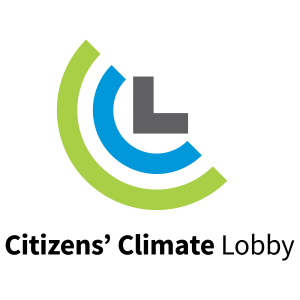
Friday Jun 25, 2021
Friday Jun 25, 2021
This episode is designed to help you improve your climate communication and outreach. Amanda Ripley, author of the new book, High Conflict—Why We Get Trapped and How to Get Out, explains how easy it is to fall into the high conflict trap. She provides insights about how to avoid these traps, and how to hear, truly hear, what an opponent is saying.
Amanda Ripley is an investigative journalist for The Atlantic and other magazines and a New York Times bestselling author. Her other books include The Smartest Kids in the World: And How They Got That Way, and The Unthinkable: Who Survives When Disaster Strikes—and Why. Ripley spent a decade writing about human behavior for Time magazine in New York, Washington, and Paris. Her stories helped Time win two National Magazine Awards.
The Art House
Katie Patricks is the the author of the book and podcast How to Save the World, and a TEDx speaker on the critical role of creativity, optimism, and imagination in the craft of social and environmental change. She shares with us industry secrets about how to motivate people to action. She also reveals The Big Mistake so many of us make in our climate work.
She designs "Fitbit for the planet" apps that help social impact entrepreneurs and sustainability professionals implement powerful data, game design and behavior-change techniques that create real and measurable change. She is the co-founder of Energy Lollipop and Urban Canopy in San Francisco — startups that are devoted to bringing down the peak CO2 released by the electricity grid.
You can hear standalone versions of The Art House at Artists and Climate Change
Good News Report
Our good news story this month is about a very special conference Citizens Climate Lobby organized for Catholics in the USA and beyond. Madeleine Para, president of CCL shares this good news along with Jon Clark. Jon is Citizens Climate Lobby’s Appalachia Regional Coordinator and he developed the idea for the conference. Learn more about Catholics in CCL and beyond.
If you have good news to share, email us radio @ citizensclimate.org
Dig Deeper
- Here's a fun quiz developed by Oscar Trimboli to help people assess their listening skills
- Here's Amanda Ripley’s Instagram quiz to help people figure out if they are in high conflict.
- If you think a gamified Earth sounds fun, you might enjoy joining these Fitbit for the Planet video hangouts Katie Patrick organizes each month with our community of world-changers and a special expert guest.
- Lynn Neuman, A Dancer & Choreographer Creatively Engages the Public
- Elizabeth Doud and the Mermaid Tear Factory
- Catholic Climate Covenant
We always welcome your thoughts, questions, suggestions, and recommendations for the show. Leave a voice mail at 518.595.9414. (+1 if calling from outside the USA.) You can email your answers to radio @ citizensclimate.org
You can hear Citizens’ Climate Radio on iTunes, Spotify, Stitcher Radio, SoundCloud, Podbean, Northern Spirit Radio, Google Play, PlayerFM, and TuneIn Radio. Also, feel free to connect with other listeners, suggest program ideas, and respond to programs in the Citizens’ Climate Radio Facebook group or on Twitter at @CitizensCRadio.
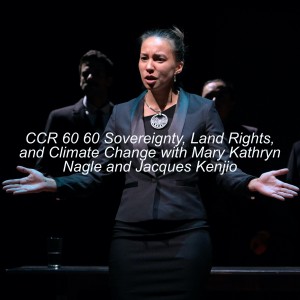
Friday May 28, 2021
Friday May 28, 2021
As impacts of climate change affect the places where we live, conflicts and questions arise. This is what happened to Jacques Kenjio and his family in the costal city of Douala, Cameroon. Although a tribal chief provided them with legal documentation to occupy the land, the government forced them and hundreds of others to leave without providing any compensation. This motivated Jacques to learn about social justice and to pursue higher education in the United States.
Jacques Kenjio is a Ph.D. Candidate in environmental studies at Antioch University New England (AUNE) with a focus on two key areas: Government-Driven land dispossession and land policy reform in Sub-Saharan Africa at large, and specifically in his country of birth, Cameroon. His other research interests include: environmental justice and policy (especially climate change policy), multi-stakeholder participatory processes, social justice and community building.
In looking for ways to get involved in the climate movement, he stumbled upon Citizens Climate Lobby. At first he could not believe citizens were able to approach lawmakers and their staffs directly. This type of access just does not happen in Cameroon. In addition to taking part in CCL activities in the USA, Jacques is now active in Citizens Climate International in supporting CCL volunteers in French speaking African countries.
Jacques reveals the challenges CCLers in many African countries face in part because of the daily challenges that come from poverty, underemployment, and political instability. He also tells us the moving story of Bunyui John Njabi, a CCL volunteer who was killed because of political unrest in Cameroon. In addition to his work wtih CCL Bunyui John Njabi sang original songs about climate change and environmental justice. His song and music video Water Time Bomb and highlights the urgent need to address water shortages and pollution. You will hear the song in this episode.
The Art House
Mary Kathryn Nagle is an enrolled citizen of the Cherokee Nation. She is also a partner at Pipestem and Nagle Law, P.C., where she works to protect tribal sovereignty and the inherent right of Indian Nations to protect their women and children from domestic violence and sexual assault. She is also a successful playwright who has been using the stage to raise awareness about land sovereignty issues and the epidemic violence against women.
From 2015 to 2019, she served as the first Executive Director of the Yale Indigenous Performing Arts Program. Nagle is an alum of the 2013 Public Theater Emerging Writers Program. Productions include Miss Lead (Amerinda, 59E59), Fairly Traceable (Native Voices at the Autry), Sovereignty (Arena Stage), Manahatta (Oregon Shakespeare Festival), Return to Niobrara (Rose Theater), and Crossing Mnisose (Portland Center Stage), Sovereignty (Marin Theatre Company), and Manahatta (Yale Repertory Theatre). She has received commissions from Arena Stage, the Rose Theater (Omaha, Nebraska), Portland Center Stage, Denver Center for the Performing Arts, Yale Repertory Theatre, Round House Theater, and Oregon Shakespeare Theater.
Many thanks to CCL volunteer Melissa Giusti for introducing me to Mary Kathryn Nagle.
You can hear standalone versions of The Art House at Artists and Climate Change
Good News Report
Our good news story today comes from a filmmaker in the United States. INHABITANTS: An Indigenous Perspective brings essential stories to screens and has been well received. It premiered at the DocLands Film Festival earlier this month.
For screening details and more info visit inhabitantsfilm.com
If you have good news to share, email us radio @ citizensclimate.org
Dig Deeper
- CAMEROON: when women, who are sick from water and climate change, are discriminated
- Why a water crisis in Cameroon is disproportionately affecting women
- New Report Finds Increase of Violence Coincides with Oil Boom University of Colorado Boulder
- This Land podcast series, An 1839 assassination of a Cherokee leader and a 1999 murder case – two crimes nearly two centuries apart provide the backbone to a 2020 Supreme Court decision that determined the fate of five tribes and nearly half the land in Oklahoma.
- Music in this episode include Dreamers Of The Shore by Volcan Peaks feat. Francis Cody
We always welcome your thoughts, questions, suggestions, and recommendations for the show. Leave a voice mail at 518.595.9414. (+1 if calling from outside the USA.) You can email your answers to radio @ citizensclimate.org
You can hear Citizens’ Climate Radio on iTunes, Spotify, Stitcher Radio, SoundCloud, Podbean, Northern Spirit Radio, Google Play, PlayerFM, and TuneIn Radio. Also, feel free to connect with other listeners, suggest program ideas, and respond to programs in the Citizens’ Climate Radio Facebook group or on Twitter at @CitizensCRadio.
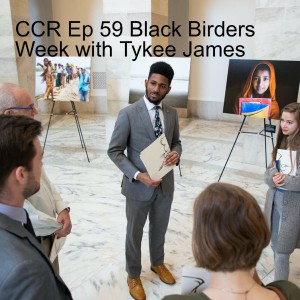
Friday Apr 23, 2021
CCR Ep 59 Black Birders Week with Tykee James
Friday Apr 23, 2021
Friday Apr 23, 2021
As the government affairs coordinator at the National Audubon Society in Washington, DC. Tykee James has a special role—organizing bird walks with members of Congress and congressional staff! Birding has been important to him ever since he started as a teen in Philadelphia.
Last year, after a racist incident against a Black birder in New York’s Central Park, Tykee James and fellow birders decided to create #BlackBirdersWeek. They had only hours to organize the event which included using social media to reveal a whole world of birding by people of color. During that week, the #BlackBirderWeek campaign had more than 600 million impressions on social media sites. It also generated national press coverages.
Tykee joins us to talk about the incredibly successful campaign and the need to tell stories about Black experiences that go beyond narratives of trauma. He also shares his plans for this year’s Black Birders Week.
Tykee James is the government affairs coordinator at the National Audubon Society and sits on the board of directors of the DC Audubon Society, Wyncote Audubon Society, Audubon Maryland-DC, the Birding Co-op, and the Academy of Natural Sciences at Drexel University. In his personal time he is the audio producer for Wildlife Observer Network, a wildlife media project he started with some wildlife-friendly friends in Philly. Tykee hosts two podcasts: Brothers in Birding and On Word for Wildlife.
The Art House
Citizens Climate Radio host, Peterson Toscano, shares some of his own climate story. In doing so, he evokes the spirit of American poet, Walt Whitman. He reveals there was a lot more to the bard than just his famous book, Leaves of Grass. Whitman evolved from an aimless young man to a dynamic new poetic prophet to a tender and faithful caregiver to young men devastated by the American Civil War.
Like the need to increase our empathy during this time of the Coronavirus Pandemic, Peterson stresses how climate change requires an opening of the heart. Whitman models this beautifully in the ways he cared for wounded and dying soldiers.
Influenced by Gary Schmidgall’s book, Walt Whitman: A Gay Life, Peterson recreates the moment of Whitman’s first breakthrough. It happened at an evening in the Opera when he heard the Italian diva Madame Marietta Alboni. Her voice pierced Whitman and opened up his artistic soul. You will hear Fac ut Portem from Rossini’s Stabat Mater available on Archive.org as Peterson narrates the moment.
You can hear standalone version of The Art House at Artists and Climate Change
Good News Story
Our Good News Story comes out of Portland, Oregon. Lane Shaffer is a 15 year old high school student. He is one of several students seeking to change public transportation policy in the Portland area.
In addition to working on this public transportation project, Lane is also one of the hosts of All in My Head podcast. It is produced by a group of teens that are making a podcast for youth, by youth. They counter stereotypes around mental health in the teen BIPOC (Black, and Indigenous, People of Color) and LGBTQ+ community.
If you have good news to share, contact Peterson radio @ citizensclimate.org
Dig Deeper
- How to Be an Urban Birder, book by David Lindo
- Hear the full conversation between Tykee James and host, Peterson Toscano
- Black and Latinx Birders Scholarship
- Envisioning an Anti-Racist Sustainable Philly A panel discussion focused on understanding sustainability from the perspective of diverse and often marginalized communities (recording on YouTube)
- Walt Whitman and the Civil War, American Experience on PBS
We always welcome your thoughts, questions, suggestions, and recommendations for the show. Leave a voice mail at 518.595.9414. (+1 if calling from outside the USA.) You can email your answers to radio @ citizensclimate.org
You can hear Citizens’ Climate Radio on iTunes, Spotify, Stitcher Radio, SoundCloud, Podbean, Northern Spirit Radio, Google Play, PlayerFM, and TuneIn Radio. Also, feel free to connect with other listeners, suggest program ideas, and respond to programs in the Citizens’ Climate Radio Facebook group or on Twitter at @CitizensCRadio.
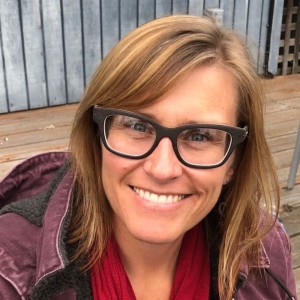
Friday Mar 26, 2021
Friday Mar 26, 2021
If you are feeling up, down or somewhere in between, hopefully by the time you finish this episode you will feel encouraged in the great work you are doing.
Dr. Krista Hiser is teaches at Kapiʻolani Community College and is currently serving as the Director of the Center for Sustainability Across the Curriculum in Hawaii. Her research uses focus groups, interviews, and reflective writing to learn more about student and faculty perspectives on climate change and sustainability. To share the findings she and her colleague Matthew K. Lynch co-wrote the paper, Worry and Hope: What College Students Know, Think, Feel, and Do about Climate Change. It appears in the Journal for Community Engagement and Scholarship.
This study is being replicated at universities in the USA and reveals how students are feeling about climate change and where they are learning about it. With this data, Kr. Hiser leads workshops to help faculty expand their teaching strategies in order to help students manage complex emotions related to our climate predicament.
Dr. Hiser has published on community engagement, service-learning, organizational change, post-apocalyptic and cli-fi literature. She is also the author of Field Notes: Teaching Climate Change in Higher Education, a blog available through Medium.com
The Art House
Sarah Jaquette Ray is a professor of environmental studies, a writer, and a mom. She doesn’t necessarily see herself as an artist. In taking on climate change though, she recognizes the essential role of the arts. On Earth Day 2020, in the midst of an urgent Coronavirus pandemic, she published a book that is helping people navigate their strong feelings about climate change.
A Field Guide to Climate Anxiety: How to Keep Your Cool on a Warming Planet, provides practical insights and proven techniques for keeping focused on pursuing solutions for a complicated and challenging topic. With warmth, humor, and expertise, Sarah Jaquette Ray will help you better know how to stay engaged without becoming overwhelmed.
Host Peterson Toscano says, “Reading Sarah’s book, I saw how the concepts she covers are not just helpful for students in high school and college. They also are questions and issues artists who are engaged in climate work consider all time. For storytellers, Sarah suggests we adjust the lens of how we look at climate stories. Telling the stories that will have the most impact takes real work.”
You can hear standalone versions of The Art House at Artists and Climate Change
Good News Report
Dr. Anthony Leiserowitz from Yale Climate Connections shares some good news in addressing a long history of injustice. He chats with Cate Mingoya of Groundwork USA, a network of environmental justice organizations. In order to fight inequality in their neighborhoods, some city residents are using maps to reveal what they have known for a long time. They show how racist housing policies of the past have left residents more vulnerable to the impacts of climate change today.
Mingoya says the maps show how the impacts of redlining persist, and provide an important tool for local residents, “to sit down with their local government, with elected officials, with leaders in their community and say, ‘You need to explain why this is still the case and you need to explain what you’re going to do to make things look a little bit different.’”
If you have good news to share, leave a voice mail at 518.595.9414. (+1 if calling from outside the USA.)
Dig Deeper
- Kent University Anthropology and Conversation Blog Post: “We must be kind to ourselves and respond rather than react to climate change” – Responding mindfully to eco-anxiety
- CCR Episode 23 Mental Health and Climate Change with Dr. Natasha DeJarnett and Dr. Lise Van Susteren
- Resilience Hub found at CCL Community provides opportunities for building personal and chapter resilience that supports purposeful action on climate.
We always welcome your thoughts, questions, suggestions, and recommendations for the show. Leave a voice mail at 518.595.9414. (+1 if calling from outside the USA.) You can email your answers to radio @ citizensclimate.org
You can hear Citizens’ Climate Radio on iTunes, Spotify, Stitcher Radio, SoundCloud, Podbean, Northern Spirit Radio, Google Play, PlayerFM, and TuneIn Radio. Also, feel free to connect with other listeners, suggest program ideas, and respond to programs in the Citizens’ Climate Radio Facebook group or on Twitter at @CitizensCRadio.
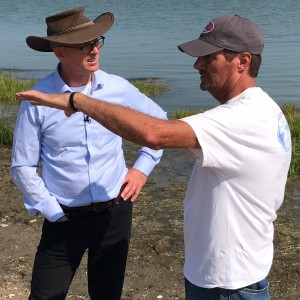
Friday Feb 26, 2021
CCR Ep 57 Bob Inglis - The Tide is Rising
Friday Feb 26, 2021
Friday Feb 26, 2021
Citizens Climate Education encourages bipartisan support for climate solutions. While people on the Left, Right, and in the Middle might disagree on many issues, Climate Change is one that can bring us together. But this is not always easy to do. It requires listening deeply to others who hold views on issues and policies that differ from my own.
Climate advocates are wondering: In a time of tense partisan divisions, how can I learn to listen to someone from a different political party? How might I identify shared values and common ground? In this episode of Citizens Climate Radio we will get some practice in listening. We will hear from the political the right and the left.
Bob Inglis is the Executive Director of republicEn.org. He was elected to the U.S. Congress in 1992, having never run for office before and he served a pair of six-year terms (1993-98, 2005-10). In 2011, Inglis went full-time into promoting free enterprise action on climate change and launched the Energy and Enterprise Initiative (“E&EI”) at George Mason University in July 2012. In the fall of 2014, E&EI rebranded to become republicEn.org. republicEn.org is an online grassroots community of over 10,000 Americans educating the country about free-enterprise solutions to climate change.
Bob shares some of his own journey about how he got into the climate work, and he tells us about the lessons he learned in reaching out to fellow conservatives. He also reveals to us his thoughts and feelings about the January 6th storming of the US Capitol by supporters of then President Donald Trump.
The Art House
In the Art House we feature song leaders Annie Patterson and Peter Blood. They are liberal Quakers in New England who have been leading singing for over 30 years. They talk about the songs that motivate and inspire climate advocates. Some are protest songs and others are beautiful ballads. They discuss the role of music in social movements as they offer up their own tiny desk concert.
Annie and Peterson are the creators of the Rise Up Singing and Rise Again Song Books. These songbooks take on social justice issues like racism, poverty, inequality, and sexism. See them in action on the Rise Up and Sing YouTube channel.
You can hear standalone version of The Art House at Artists and Climate Change.
Good News Report
We partnered with Yale Climate Connections to bring us good news out of Hammond, Indiana. After a coal-fired power plant shut down in 2012, the city had to figure out what to do with the site while also replacing the lost tax revenue the plant closure created. They came up with a creative solution.
If you have good news to share, leave a voice mail at 518.595.9414. (+1 if calling from outside the USA.)
Dig Deeper
- Dan Kahan’s cultural cognition shows why climate-splaining is a fail
- Remembering George Shultz: George Shultz: “Climate is changing,” and we need more action. Former secretary of state — and former MIT professor — urges progress on multiple fronts. MIT News 2014
- Cultural Cognition Project
- EcoRight Speaks Podcast, a project of republicEN
- Bipartisanship improves public opinion of legislators & policy by Flannery Winchester, CCL Blog
- Emma’s Revolution: Our House is on Fire
We always welcome your thoughts, questions, suggestions, and recommendations for the show. Leave a voice mail at 518.595.9414. (+1 if calling from outside the USA.) You can email your answers to radio @ citizensclimate.org
You can hear Citizens’ Climate Radio on iTunes, Spotify, Stitcher Radio, SoundCloud, Podbean, Northern Spirit Radio, Google Play, PlayerFM, and TuneIn Radio. Also, feel free to connect with other listeners, suggest program ideas, and respond to programs in the Citizens’ Climate Radio Facebook group or on Twitter at @CitizensCRadio.
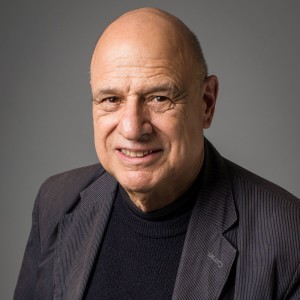
Friday Jan 22, 2021
CCR 56 Tony Campolo--A Christian's Call to Save Creation
Friday Jan 22, 2021
Friday Jan 22, 2021
Last month we featured three Conservative Christians who told us how their faith compels them to promote creation care and climate change solutions. This month we feature one of America’s most widely known Progressive Evangelical Christian thought leaders. Rev. Tony Campolo is professor emeritus of sociology at Eastern University, and he led the Evangelical Association for the Promotion of Education for more than 40 years.
Rev. Campolo has written over 50 books on topics that have educated and challenged his Evangelical Christian audience. He has been ahead of his time on a variety of social issues. In 1992 he published the book, How to Rescue the Earth Without Worshiping Nature, A Christian Call to Save Creation. In the book, he seeks to help believers see they have a role to play in caring for creation.
Rev. Campolo, who is 85 and has never retired, suffered a stroke in 2020. He is at home recovering with the help of his wife Peggy. Before the Pandemic and his stroke, Citizens Climate Radio’s host, Peterson Toscano, was fortunate enough to sit down with Tony and ask him about his 1992 book.
Rev. Campolo reveals his frustration with fellow ministers and accuses them of not listening to God’s voice in regard to the mandate to care for creation.
The Art House
Returning to the Art House is Jennie Carlisle, the curator and director of the Smith Gallery at Appalachian State University along with Laura England, a senior lecturer. They are two of three co-facilitators of ASU’s Climate Stories Collaborative. Both Jennie and Laura appeared in Episode 49 and told us about how in spring 2020 they quickly adapted to the Covid Global Pandemic by putting their annual Student Climate Stories Showcase onto Instagram.
Some climate leaders see art straightforward communication tool. But art overloaded with messages about issues and politics can turn out clunky and preachy. How does an artists stay in a creative space? When producing climate arts, what is more important the process or the product?
You can hear standalone version of The Art House at Artists and Climate Change.
Good News Report
This episode we begin a new feature, The Good News Report. Listeners share their climate successes with us. Good news this month comes from Cathy Orlando in Sudbury, Ontario, Canada. She is the International Outreach Manager for Citizens Climate Lobby and also the Canadian Director. Slow, steady, and relentless climate advocacy has paid off!
If you have good news to share, contact Peterson Toscano: radio @ CitizensClimate.org
Dig Deeper
- Ron Sider, Canadian-born American theologian and social activist
- Tony Campolo’s Christmas 2020 Homily
- Making a Planet Worth Saving: Bill McKibben interviews Reverend Lennox Yearwood, Jr. (New Yorker)
- Amitov Ghosh: Where is the Fiction about Climate Change? (The Guardian)
We always welcome your thoughts, questions, suggestions, and recommendations for the show. Leave a voice mail at 518.595.9414. (+1 if calling from outside the USA.) You can email your answers to radio @ citizensclimate.org
You can hear Citizens’ Climate Radio on iTunes, Spotify, Stitcher Radio, SoundCloud, Podbean, Northern Spirit Radio, Google Play, PlayerFM, and TuneIn Radio. Also, feel free to connect with other listeners, suggest program ideas, and respond to programs in the Citizens’ Climate Radio Facebook group or on Twitter at @CitizensCRadio.
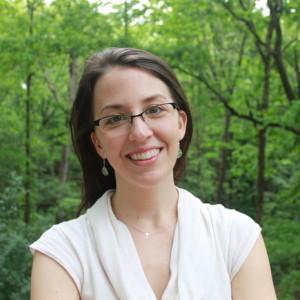
Tuesday Dec 22, 2020
CCR Ep 55 Climate Change and Creation Care: What Would Jesus Do?
Tuesday Dec 22, 2020
Tuesday Dec 22, 2020
In a followup to our most downloaded episode, What Does the Bible Say About Climate Change?, host, Peterson Toscano speaks with two Christian women about their faith, their commitment to creation care, and why they see Citizens Climate Lobby as a place where they can pursue meaningful solutions. They talk about their values, the Bible, the spiritual charge to do the work of reconciliation, especially in a contentious and politically divided country. They speak with conviction about the need for Christian believers to take creation care seriously.
Kelsey Grant served as a CCL fellow with the Mountain West Higher Education Region. Currently she is a CCL Conservative Fellow and member of the Conservative Caucus Executive Team. At the University of Colorado-Boulder she is a pre-law student, double majoring in Political Science and Philosophy. She discovered Citizens’ Climate Lobby through her church, where she co-founded environmental ministries, taught about environmental stewardship as a Sunday School teacher, and occasionally served as a guest preacher. She has published over a dozen Op-Eds/letters to the editor. Kelsey was named a 2020 Udall Scholar and 2020 Truman Scholar Finalist for her work on conservative outreach in the climate space and empowering individuals to be effective facilitators of bipartisanship. Kelsey Grant’s Instagram.
Andrea Zink is from Tennessee and has spent her professional career working in the non-profit sector for mission-driven organizations such as The Salvation Army, Vanderbilt University, and Nashville Opera. She attends the United Methodist Church and serves on the United Methodist Circle of Grace prison ministry music team and on several UMC Creation Justice work committees.Andrea joined CCL in 2016 when she discovered CCL's bipartisan approach to climate change solutions. Andrea Zink’s Instagram.
The Art House
In the Art House you will meet Lindsay Linsky. A Bible-believing Christian in Georgia, she is the author of the book, Keep It Good—Understanding Creation Care through Parables. Through her book she seeks to break through environmental apathy and partisan noise to show Christians God’s simple yet beautiful message of creation stewardship.
As a teacher, Lindsay Linsky understands how challenging it is to correct misinformation, and she recognizes the power of stories to engage people with new ideas. In our show she shares practical insights and a very powerful Bible verse that highlights the call to creation care.
Lindsay Linsky has been featured on panel discussions at theology conferences as well as podcasts and webinars on Creation Care Radio, Yale Climate Connections, and RepublicEN’s The EcoRight Speaks podcast. Special thanks to Price Atkinson for introducing us to Lindsay Linsky.
Lindsay earned her PhD in Science Education with a focus on environmental education and ocean literacy from the University of Georgia, and lives with her husband and children in Suwanee, GA. Lindsay Linsky on Twitter.
You can hear standalone versions of The Art House at Artists and Climate Change
Dig Deeper
- Lindsay Linsky on Why Christians Need to Keep Creation Good (YouTube)
- Evangelical Environmental Network
- Young Evangelicals for Climate Action
- Christianity Today articles on Creation Care
- Church and creation care: we need a theology-before-politics approach by Doyle Sager in Baptist News Global
- Bible Verses on Creation Care
- How to Rescue the Earth without Worshiping Nature—A Christian’s Call to Save Nature by Tony Campolo, our guest for Ep 56 which premieres on January 22, 2012.
We always welcome your thoughts, questions, suggestions, and recommendations for the show. Leave a voice mail at 518.595.9414. (+1 if calling from outside the USA.) You can email your answers to radio @ citizensclimate.org
In 2021 we will also introduce a new feature to our monthly show. Our Good News Report will give listeners a chance to share those important and often under-reported stories of climate successes. It may be a story of national significance or something happening in your own neighborhood. We want to celebrate your successes. If you have a good news story, email us: radio @ citizensclimate.org.
You can hear Citizens’ Climate Radio on iTunes, Spotify, Stitcher Radio, SoundCloud, Podbean, Northern Spirit Radio, Google Play, PlayerFM, and TuneIn Radio. Also, feel free to connect with other listeners, suggest program ideas, and respond to programs in the Citizens’ Climate Radio Facebook group or on Twitter at @CitizensCRadio.
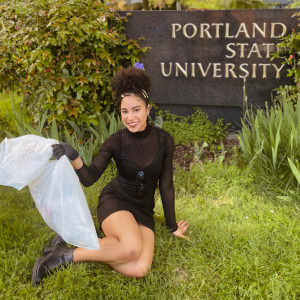
Friday Nov 27, 2020
Friday Nov 27, 2020
A recent episode of Lew Blaustein’s Green Sports Pod featured a riveting interview with National Football League player, Garry Gilliam. Blaustein writes:
Garry Gilliam experienced this hope-squashing system firsthand during his childhood in the opportunity-deprived section of Harrisburg, Pennsylvania. Now, the ex-NFL offensive lineman is using his resources and his seemingly boundless energy to try to break that system, replacing it with a more equitable, hopeful one.
His system-breaking tool is The Bridge Eco-Village, an innovative start-up that provides opportunities for African-Americans and other marginalized people to “Work, Eat, Live, Learn and Play” in affordable, high quality mixed-use developments. The pilot is being built in — where else — Harrisburg.
Lew Blaustein has given us permission to rebroadcast an edited version of his interview with Garry Gilliam. You will also hear Citizens Climate Radio’s host, Peterson Toscano check in with Gilliam to find out how things stand with the Bridge Eco-Village today in light of the Covid-19 Global Pandemic. Garry Gilliam has good news to share about the progress of the project.
As the Coronavirus pandemic shut everything down, Sharona Shnayder, a college student, simply could not stay inside any longer. One Tuesday she joined a friend at neighborhood park. Together, while maintaining a safe physical distance, they picked up trash at a park in Portland, OR near their university.
Not only did people in her community begin to notice and join in; word quickly spread. Now there are Tuesdays for Trash events happening all over the world.
Sharona, who grew up in Nigeria and now lives in the USA, shares how picking up trash is bringing people together, lifting spirits, and getting people engaged in climate work. In fact, this may be a project your own climate group wants to take on in order to connect in a new way with your own community.
We always welcome your thoughts, questions, suggestions, and recommendations for the show. Leave a voice mail at 518.595.9414. (+1 if calling from outside the USA.) You can email your answers to radio @ citizensclimate.org
You can hear Citizens’ Climate Radio on iTunes, Spotify, Stitcher Radio, SoundCloud, Podbean, Northern Spirit Radio, Google Play, PlayerFM, and TuneIn Radio. Also, feel free to connect with other listeners, suggest program ideas, and respond to programs in the Citizens’ Climate Radio Facebook group or on Twitter at @CitizensCRadio.

